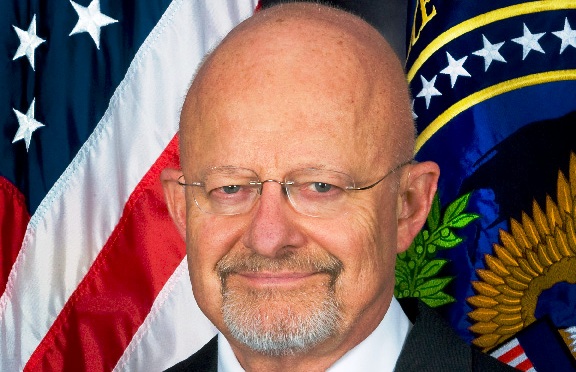30 Sep 2013 | Digital Freedom, Guest Post, News, Pacific Standard

NSA operations center in 2012 (Photo: Public Domain)
A few days ago the European Parliament’s Office of Citizens’ Rights and Constitutional Affairs released a notably pointed briefing paper arguing for Europe to stop trusting American Internet services. The briefing and the committee are the latest forum tosuggest that European states create domestic cloud computing capacities to provide member states legal protection for NSA data surveillance. The report has the not-at-all-subtle title “The US National Security Agency Surveillance Programmes (PRISM) Foreign Intelligence Surveillance (FISA) Activities and Their Impact on EU Citizens’ Fundamental Rights.” Among the findings:
Prominent notices should be displayed by every US web site offering services in the EU to inform consent to collect data from EU citizens. The users should be made aware that the data may be subject to surveillance (under FISA 702) by the US government for any purpose which furthers US foreign policy.
The argument there being that people will have an incentive to find other websites to use. Particularly for e-commerce. Companies like Amazon, and U.S. airlines and ticketing agencies—Expedia and the like—won’t be pleased, and that in turn will create economic pressure to alter surveillance strategy, the report argues.
A consent requirement will raise EU citizen awareness and favour growth of services solely within EU jurisdiction. This will thus have economic impact on US business and increase pressure on the US government to reach a settlement.
That isn’t all. The report argues for the European Union to simply swear off U.S.-based cloud computing, and to develop local capacity. Again, the argument is largely economic.
Such a policy would reduce US control over the high end of the Cloud e-commerce value chain and EU online advertising markets. Currently European data is exposed to commercial manipulation, foreign intelligence surveillance and industrial espionage. Investments in a European Cloud will bring economic benefits as well as providing the foundation for durable data sovereignty.
Further along, the report notes the different ways the NSA scandal has been understood inside and outside the US. Inside the U.S. a key issue was whether the NSA has been spying domestically, on U.S. citizens, and the implications of that question for domestic data security. Abroad, the report notes, people are understandably more interested in their own ability to protect personal data from the NSA. The briefing suggests E.U.-U.S. negotiations on data security, though efforts at such negotiations have failed previously.
…a casual reader would not understand that the intended target of surveillance was non-Americans, and that they had no rights at all. It seems that the only solution which can be trusted to resolve the PRISM affair must involve changes to the law of the US, and this should be the strategic objective of the EU. Furthermore, the EU must examine with great care the precise type of treaty instrument proposed in any future settlement with the US. [boldface as printed] Practical but effective mechanisms are also needed to verify that disclosures of data to the US for justifiable law enforcement investigations are not abused.
In sum, Europe’s still upset, and talking seriously and in public about how to protect itself from American eavesdropping. Yesterday, Slate‘s Ryan Gallagher flagged a want ad for a counterintelligence professional posted on a Parliament website last July, shortly after the Edward Snowden affair broke. The same body is housed in a Brussels building ID’d as an NSA target in the Snowden papers, according to the Slate report.
This article originally appeared at Pacific Standard. Pacific Standard is an arm of the nonprofit Miller-McCune Center for Research, Media and Public Policy.
27 Sep 2013 | Digital Freedom, News, Pakistan

NSA head James R Clapper
Dear Mr Clapper,
We are reaching out to you with important information that may be of crucial value in preserving your organisation’s integrity and purpose. As citizens of Pakistan, we feel there’s an unexplainable bond, a debt if you’d like to call it, that we owe to your agency; after all, we are the second most interesting people in the world in your ever-vigilant eyes. We are therefore writing to raise with you an issue of extreme importance & national security.
The information here is highly critical and can jeopardise our security if leaked; you see, the world does not really recognise whistleblowers as yet. We trust you to keep this to yourself.
The government of the United Kingdom and the government of Canada are both involved in activities that may be considered by you a grave violation of the sovereignty of your organisation. Independent research group The Citizen Lab – truly independent as they do not take government or corporation support – has revealed the presence of Netsweeper and FinFisher equipment in Pakistan, belonging to companies with headquarters in Canada and the United Kingdom respectively.
It is baffling that these two respected governments, your notable allies, have not taken the necessary steps to disable these equipments, or at the very least stopped the trade. FinFisher for one has been used actively in Bahrain, aiding the Bahraini government in cracking down on activists, including an activist your government has lauded and awarded. This seems to us as a painful revelation that shows a lack of faith in your agency from your own allies.
As far as we are concerned, we don’t understand why these companies need to sell this equipment to our government, and why our government needs to spy on us when your organisation has dedicated staff, labour, and, not to forget, extensive budgets to be able to do just that.
With a heavy heart, we hope to keep you informed (just in case you missed out) and hope that you will take strict action to strike down these Weapons of Mass Surveillance that are in blatant disregard, grossly disrespectful, and a gross violation of your integrity and the national security values of your country.
Yours sincerely,
Citizens of the Second Most Interesting Nation in the World
SIGN INDEX’S PETITION AGAINST INTERNET SURVEILLANCE
This article was originally posted on 27 Sept 2013 at indexoncensorship.org
25 Sep 2013 | News

(Photo: David von Blohn / Demotix)
This article was originally published at Indy Voices
What’s happened to Edward Snowden and his revelations about the National Security Agency’s surveillance programme? As stories keep emerging from one of the largest leaks in US history, we learn more and more about the Americans’ ability to monitor communications, but seem less sure how to respond. Most people would acknowledge that the state does retain some right to monitor suspect activities. But this is a very different proposition from the population-wide mass surveillance suggested by the documents leaked by Snowden. Clearly the balance has tipped much too far in favour of default data gathering. So how do we move it back?
This is a complex discussion, and it’s not really being had in the UK right now. The Guardian’s Simon Jenkins has suggested an establishment conspiracy has kept the public from talking about this – it’s certainly true that the response here has not been on the level of that in other countries (not least in Brazil, where a national Internet redesign to avoid US surveillance is being considered).
But part of the problem here is not simply that people have been shielded from the discussion on surveillance, or that people don’t care. It is that people do not know what we are supposed to do about this. Who do we appeal to? What do we want?
This is where the European Union can come into its own. An Englishman’s home may be his castle, but nowhere is protection of privacy given more credence than in Brussels and Berlin. A horror of Soviet-style surveillance of citizens runs deep in many European institutions and nation states, particularly those that had hands-on experience. The most powerful person in Europe, Angela Merkel, remember, was a citizen of Stasiland.
The European Parliament’s Civil Liberties, Justice and Home Affairs Committee (Libe), has set out to investigate claims of surveillance and examine what the EU can do about it. UK Labour MEP Claude Moraes has been charged with reporting on the Committee’s findings by the end of the year.
The parliament will be considerably aided by a 36-page briefing by independent surveillance researcher Caspar Bowden, who was helpfully mapped out the history of US and UK surveillance, and overlap with the European Union, all the way back to Alan Turing’s work with US spies in 1942.
Bowden comes up with several recommendations for Europe: the development of a “European cloud”, the revoking or renegotiation of mechanisms that allow US companies to gather data from European users, and, significantly in the case of the Snowden revelations, “systematic protection and incentives for whistleblowers”.
The European parliament investigation is welcome. But in reality, there is only a certain amount the parliament can actually achieve. The real power will, in the end, rest in the will of the governments of the respective European Union countries to act. Europe’s cyber strategy already states that “increased global connectivity should not be accompanied by censorship or mass surveillance”. But it’s time EU leaders acted on this.
That’s why Index on Censorship, along with dozens of other groups, including Amnesty, Reporters Without Borders and the Electronic Frontier Foundation, as well as stars and activists such as Bianca Jagger, Stephen Fry and Cory Doctorow, is petitioning European leaders directly. The next European Council Summit takes place at the end of October. We want every European government head there to publicly take a stand against mass surveillance.
The European Union, founded in part as a democratic bulwark against the authoritarianism of the eastern bloc, has a chance to stand out in the world against surveillance and for the rights of free speech and privacy. In the coming decades, power will be defined by who controls information: Europe, as a powerful democratic force, should work to ensure that its own ordinary citizens and people around the world are not left impotent.
Sign the petition telling EU leaders to stop mass surveillance here
28 Aug 2013 | Uncategorized

In early August, the topic led to a sequence of accusations between two of the most influential German media outlets, the Bild Zeitung, a conservative daily tabloid newspaper, and Der Spiegel, a left-leaning weekly magazine. Both publications have the highest circulation in their respective sector in Germany. Firing first, Bild accused Der Spiegel of spreading “nonsense saying that the German population is standing under “total surveillance.” Rather than total surveillance, writes the Bild Zeitung, the German intelligence service BND gave the NSA only information on one specific person of German heritage, an abducted former Spiegel journalist. Firing back, Der Spiegel claims the intentional omission of the case from its reporting was based on the journalistic principle not to endanger abductees through reporting – an unwritten journalistic law the Bild seemed to be willing to breach.
This publicly fought battle indicates the juxtaposition of opinions on the surveillance affair between left-leaning and conservative media. It is also a window into the diverging public opinion on the matter.
With the upcoming September federal elections in mind, the NSA affair has been widely discussed in German media with sentiment raging from understanding to harsh criticism. Although opinion polls show that the majority of the German population is disappointed with the German government’s reaction, many view the surveillance programs as a benevolent necessity.
The reasons for the strong interest of Germany’s media in this issue stem from the country’s history and its involvement in the current affair. The state surveillance by the Stasi, the secret police in East Germany during the Cold War, has led to a strong public opinion against an Orwellian state. Recent disclosures, such as the wiretapping of European embassies in Brussels and Washington, therefore, led to first outcries.
Further, with the NSA recording up to 60 million German metadata connections per day, Germany has been the European country under closest scrutiny by the US and its allies. What is more, according to the whistle-blower Edward Snowden, the German intelligence, and maybe even the German authorities as some journalists assume, have had knowledge of the NSA surveillance system for many years.
“German authorities are in bed with the NSA,” Snowden said in an interview with Der Spiegel.
This aspect is taken up and heavily criticized by Germany’s left-leaning media. According to Der Spiegel, the muted reaction of the current German chancellery demonstrates its connivance, while also showing its inability to prevail against the US. The distorted notion of security since 9/11 and the disruption of the fundamental pillars of the constitutional state – particularly distinctive in the US – are further focal points for the left-oriented media.
The USA has “fallen ill” since the attacks on the World Trade Center, writes Klaus Brinkbäumer, deputy editor of Der Spiegel. According to him, the US is willing to breach every international law if it serves its national security and, therefore, the War on Terror. In his opinion, the US has gone off the democratic track into the abysses of unlawfulness.
The “super-fundamental right of security”, as described by Germany’s Interior Minister Hans-Peter Friedrich, “sneaked into legal and domestic policy discussions and outweighs all other fundamental rights,” Heribert Prantl, head of the domestic division of the Süddeutsche Zeitung, wrote in an editorial.
In contrast, the conservative Bild Zeitung justifies the intelligence services’ actions against the privacy of the public. They happened “for the benefit of the German population,” reads an editorial by Hugo Müller-Vogg.
“In times of global terror, more surveillance than we prefer becomes necessary,” writes Bild editor Daniel Killy.
Bild’s headline “Who wants to thwart terror must be informed earlier,” illustrates the propagated notion: the necessity of these surveillance programs for the greater good. While the Bild Zeitung expresses gratefulness towards the US for helping to secure the German population, it also agrees with the left-leaning media on the wrongness of the US wiretapping of European authorities.
As for Snowden, his depiction in German media also diverged along political lines. For the Bild Zeitung “Snowden is no hero.” His disclosure of practices of Western intelligence services is alleged to have aided the “enemy,” says Bild. From now on, argues the paper, it will become increasingly difficult to track down terrorists.
Der Spiegel depicts Snowden as a person who helped to “broaden the understanding of the architecture of the so-called security system.” As a ‘thank-you’ for his deeds, that have already led to a long overdue public discussion about the daily state surveillance and its consequences, Der Spiegel suggests that states around the world should offer Snowden asylum.
The Süddeutsche Zeitung, which depicts Snowden as a “classical political refugee,” goes even further by proposing Germany should give Snowden a temporary residence permit in order to enable him to fight for asylum on German soil.
“Edward Snowden (…) served the constitutional democracy with the disclosure of US intelligence practices; he started a discussion that can save the constitutional state in destroying itself; he revealed the misuse of power and the fundamental rights of European citizens and the fundamental rights of their elected representatives in the EU boards,” Heribert Prantl of Süddeutsche Zeitung writes in an op-ed.
However, the majority of the German public disagrees with these propositions. According to a recent opinion poll by YouGov, although 61 per cent of the German public view the disclosures as a positive action, 58 per cent would vote against an asylum for Snowden in Germany. While more than two-thirds of those polled are disappointed by the reaction of the German chancellery on the matter, 40 per cent approve state monitoring of private communication for security reasons.
But, extensive communication surveillance can have wide-ranged repercussions for the public, German media warn.
“The internet has become the life-world of many Germans,” writes Johannes Boie from the Süddeutsche Zeitung, “to monitor it, means to monitor whole lives.”




